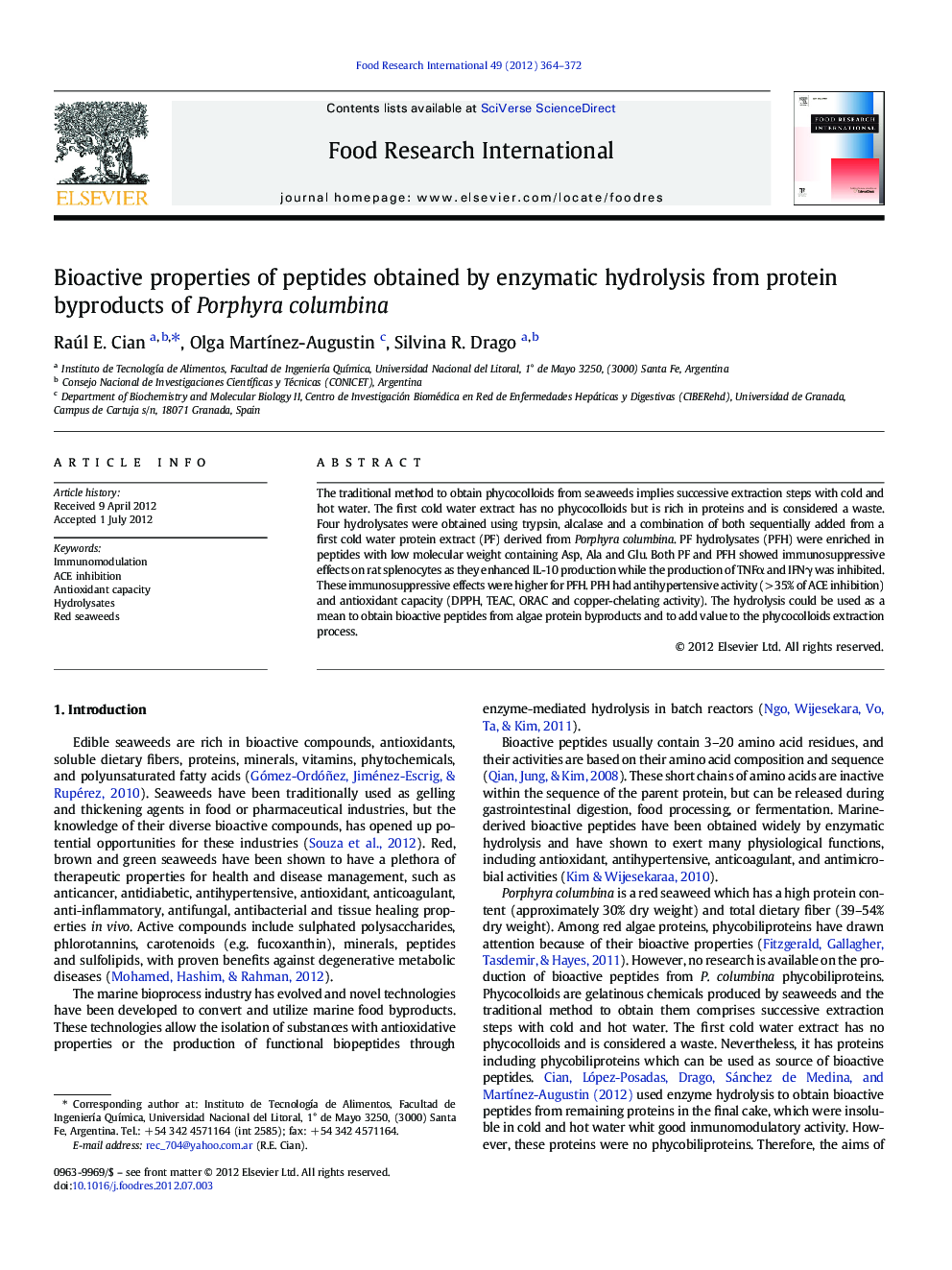| Article ID | Journal | Published Year | Pages | File Type |
|---|---|---|---|---|
| 6399117 | Food Research International | 2012 | 9 Pages |
The traditional method to obtain phycocolloids from seaweeds implies successive extraction steps with cold and hot water. The first cold water extract has no phycocolloids but is rich in proteins and is considered a waste. Four hydrolysates were obtained using trypsin, alcalase and a combination of both sequentially added from a first cold water protein extract (PF) derived from Porphyra columbina. PF hydrolysates (PFH) were enriched in peptides with low molecular weight containing Asp, Ala and Glu. Both PF and PFH showed immunosuppressive effects on rat splenocytes as they enhanced IL-10 production while the production of TNFα and IFNγ was inhibited. These immunosuppressive effects were higher for PFH. PFH had antihypertensive activity (> 35% of ACE inhibition) and antioxidant capacity (DPPH, TEAC, ORAC and copper-chelating activity). The hydrolysis could be used as a mean to obtain bioactive peptides from algae protein byproducts and to add value to the phycocolloids extraction process.
⺠Peptides with low molecular weight from P. columbina protein waste were obtained. ⺠Peptides showed immunosupressive effects on rat splenocytes. ⺠Peptides had antihypertensive activity with more than a 35% of ACE inhibition. ⺠DPPH, ABTS, ORAC radicals were neutralized by P. columbina peptides.
